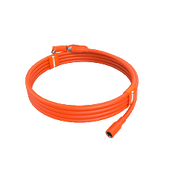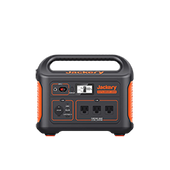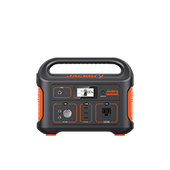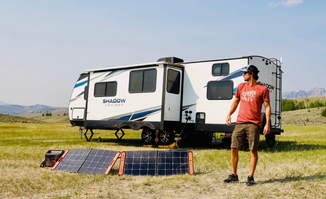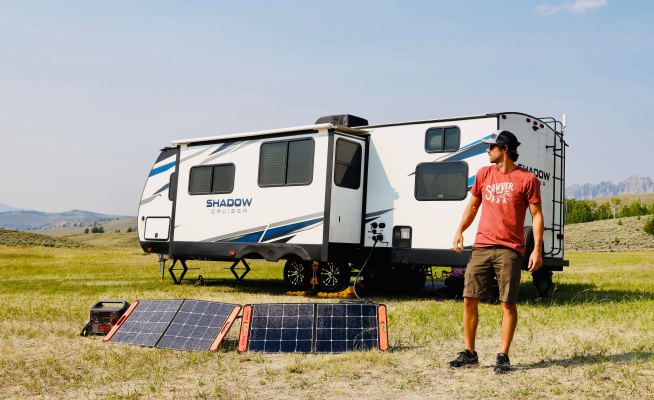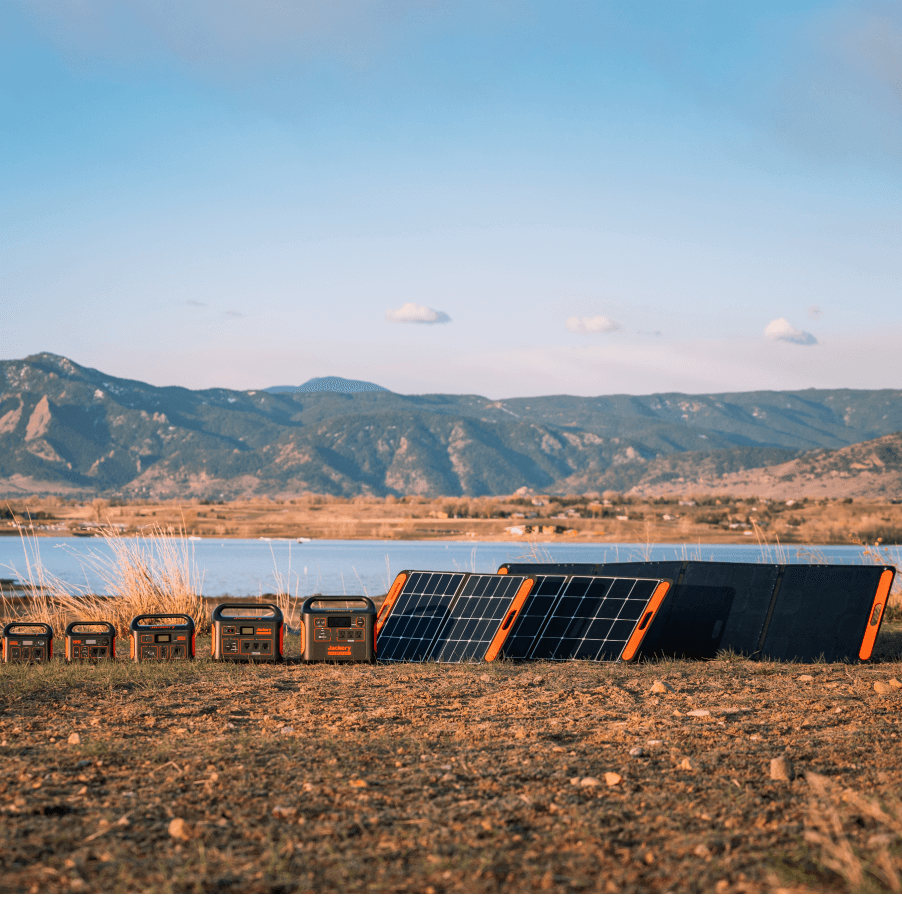In recent years, the surging demand for reliable backup power soutions has spurred exploration into various options, with a keen focus on batteries and gasoline as power sources for inverter generators. This article provides an in-depth examination of the distinctive aspects of inverter generators powered by batteries versus gasoline.
By delving into key considerations such as portability, environmental impact, maintenance requirements, and overall performance, we aim to offer valuable insights into the nuanced trade-offs associated with portable power stations and solar generators.
Decoding Inverter Generators
Inverter generators represent a significant advancement in portable power solutions. They are designed to address the shortcomings of traditional 2000 watt generators by providing cleaner and more efficient electrical power. These generators utilize advanced technology to produce high-quality electricity, making them particularly suitable for sensitive electronic devices.
Definition: An inverter generator is a compact and lightweight power source that converts raw electrical power from its generator engine into a stable AC (alternating current) using an inverter.
The inverter technology allows for precise control over voltage and frequency, resulting in a consistent and clean power output. Unlike conventional generators that produce raw AC power, inverter generators rectify the output to DC (direct current) and then invert it back to AC, ensuring a smoother and more reliable power supply.
Role in Offering Cleaner and More Efficient Power
The primary advantage of inverter generators lies in their ability to produce a "clean" power output characterized by a stable sine wave. This is crucial for powering sensitive electronic equipment like laptops, smartphones, and medical devices, which may be adversely affected by the voltage fluctuations and harmonic distortion common in conventional suitcase generators.
Moreover, inverter generators are renowned for their fuel efficiency. The engine speed of these generators adjusts dynamically based on the required load, resulting in reduced fuel consumption and quieter operation during periods of lower power demand. This efficiency not only contributes to cost savings but also aligns with contemporary environmental concerns.
Fundamental Differences: Battery-Powered vs. Gasoline-Powered Inverter Generators:
Battery-Powered Inverter Generators:
- Power Source: These portable generatorsrely on rechargeable batteries, typically lithium-ion, to store electrical energy.
- Emission-Free: Operating without emissions, battery-powered generators are a clean and environmentally friendly option.
- Limited Runtime: The drawback lies in the finite energy storage capacity, which is suitable for shorter power outages or as a supplementary power source.
Gasoline-Powered Inverter Generators:
- Power Source: Gasoline-powered generators utilize traditional internal combustion engines to generate electricity.
- Extended Runtime: With a fuel tank, these generators offer a longer runtime, suitable for prolonged power outages or extended outdoor use.
- Emissions: While more efficient than conventional generators, gasoline-powered models do produce emissions, contributing to environmental considerations.
The Pros and Cons of Gasoline Inverter Generators
|
Advantages |
Drawbacks |
|
Robust Power Output: Gasoline-powered inverter generators often boast higher power output ratings compared to their battery-powered counterparts, making them suitable for handling larger loads or powering multiple devices simultaneously. |
Noise Pollution: Traditional gasoline generators are notorious for their noise levels, contributing to environmental noise pollution, especially in residential areas or during quiet outdoor activities. |
|
Extended Runtime: The presence of a fuel tank allows for a longer runtime, making them well-suited for scenarios where continuous power supply is essential, such as during prolonged power outages or outdoor events. |
Refuelling Challenges: Gasoline generators require a steady supply of fuel, and refuelling can be challenging during emergencies or in remote locations, impacting their reliability during extended power outages. |
|
Versatility: Gasoline inverter generators are highly versatile and can be used in various outdoor settings, including construction sites, camping trips, and outdoor events where a reliable power source is required. |
Emissions: Gasoline generators emit pollutants, including carbon monoxide and nitrogen oxides, raising environmental concerns despite being more efficient than conventional generators. |
|
/ |
Limited Indoor Use: Gasoline generators should be used in well-ventilated areas due to exhaust gas emissions, limiting their suitability for indoor applications or enclosed spaces. |
The Pros and Cons of Battery-Powered Inverter Generators
|
Advantages |
Drawbacks |
|
Reduced Noise Levels: Battery-powered inverter generators stand out for their quiet operation, ideal for environments where noise pollution is a concern, such as residential areas or during quiet outdoor activities. |
Recharging Requirements: Limited Runtime: One drawback of battery-powered generators is their limited runtime, dictated by the energy storage capacity of batteries, making them more suitable for shorter power outages or as a supplementary power source. |
|
Zero Emissions: These generators produce no emissions during operation, contributing to a cleaner and more environmentally friendly power solution, making them suitable for indoor use without ventilation concerns. |
Dependency on Recharging Infrastructure: The convenience of battery-powered generators is contingent on the availability of charging infrastructure, posing challenges in areas with scarce electrical outlets or during extended power outages. |
|
Lower Maintenance Costs: Battery-powered generators have fewer moving parts than their gasoline counterparts, resulting in reduced maintenance requirements, lower chances of mechanical failure, and potentially lower long-term operating costs. |
Initial Cost: While maintenance costs may be lower, the initial purchase cost of battery-powered generators can be higher compared to gasoline generators, although long-term cost-effectiveness should be considered. |
|
Indoor Use Flexibility: Battery generators, emitting no exhaust gases, can be safely used indoors without the need for special ventilation, expanding their application in residential and indoor settings. |
/ |
Eco-Friendly Power Solutions from Jackery
Jackery stands at the forefront of eco-friendly power solutions with products like the Jackery Solar Generator 2000 Plus and the Jackery Explorer 100 Plus Portable Power Station. These devices prioritize sustainability, incorporating solar charging and battery-powered efficiency while excelling in user-friendly designs and versatile power outputs.
Whether embracing solar energy or opting for a compact power station, Jackery provides users with green and reliable energy solutions for various applications.

A Comparative Analysis: Key Considerations
Here's a side-by-side comparison of both generators to aid users in making informed decisions:
|
Factors |
Gasoline Inverter Generators |
Battery-Powered Inverter Generators |
|
Power Output |
Robust power output |
Limited power output, suitable for smaller loads |
|
Suitable for larger loads or multiple devices |
Ideal for sensitive electronics, e.g., laptops |
|
|
Runtime |
Extended runtime due to fuel capacity |
Limited runtime, dependent on battery capacity |
|
Suitable for prolonged outages or outdoor use |
More suitable for short outages or supplementary use |
|
|
Environmental Impact |
Emissions during operation |
Zero emissions during operation |
|
Contributing to air pollution |
Environmentally friendly, suitable for indoor use |
|
|
Noise Levels |
Higher noise levels |
Quieter operation, ideal for residential areas |
|
Considerable noise pollution |
Minimal noise pollution, suitable for quiet settings |
|
|
Maintenance Costs |
Higher maintenance due to complex engine |
Lower maintenance costs due to simpler mechanics |
|
Regular oil changes and parts replacement |
Reduced chance of mechanical failure |
|
|
Portability |
Portable but may be heavier and bulkier |
Generally more portable and lightweight |
|
Suitable for various outdoor settings |
Convenient for on-the-go use, camping, etc. |
|
|
Ease of Use |
Requires refuelling and handling of gasoline |
Plug-and-play design, minimal user intervention |
|
Dependency on fuel availability |
No refuelling, easy recharging with electrical outlets |
|
|
Use Cases |
Versatile for outdoor applications |
Suited for indoor use, ideal for electronic devices |
|
Construction sites, camping, events |
Residential areas, quiet environments |
Key Considerations for Users
A gasoline inverter generator may be more suitable if you require higher power output for larger appliances or multiple devices. A battery-powered inverter generator could be a better fit for sensitive electronic devices or smaller power requirements..
- Environmental Concerns: Consider the environmental impact; if reducing emissions and noise pollution is a priority, a battery-powered generator may align with eco-friendly goals.
- Runtime Requirements:Assess your need for continuous power. A gasoline generator might be more practical if extended runtime is crucial, especially during prolonged outages.
- Portability and Ease of Use: Evaluate the need for portability and ease of use. For on-the-go or outdoor use, a battery-powered generator may offer more convenience.
- Indoor vs. Outdoor Use:A battery-powered generator is a safer choice if you require a power source for indoor settings without emissions or noise concerns.
- Long-Term Cost Considerations: Factor in the initial cost, maintenance, and fuel expenses to determine the long-term cost-effectiveness based on your usage patterns.
By carefully considering these factors, users can make informed decisions based on their specific needs, preferences, and environmental considerations.
Jackery's Solar Generators: A Green Revolution
In the realm of backup power solutions, Jackery has emerged as a pioneer in providing eco-friendly and sustainable alternatives. With a focus on harnessing solar energy, Jackery's Solar Generator 2000 Plus and the Jackery Explorer 100 Plus Portable Power Station stand out as green power options, offering users a reliable and environmentally conscious way to meet their energy needs.
1. Jackery Solar Generator 2000 Plus
Jackery Solar Generator 2000 Plus is a groundbreaking solution for portable power that has set new standards with its exceptional features and capabilities. This high-performance generator is designed for off-grid living, outdoor exploration, and professional work, offering expandable capacity.
- Versatility Unleashed
The Jackery Solar Generator 2000 Plus provides unparalleled flexibility, supporting a wide range of scenarios with its expandable capacity. From powering a day of camping with 2 kWh to sustaining a week of home backup with 12 kWh, it adapts effortlessly to diverse power needs.
- Massive Power Output
With a remarkable power output of up to 3000W, a 30% increase compared to other 2 kWh products on the market, this 3000 watt generator effortlessly powers heavy-duty devices. This makes it an ideal choice for road trips, camping adventures, and handling emergencies at home.
- Ultra-Fast Solar Charging
Equipped with Advanced IBC Technology, the Jackery Solar Generator 2000 Plus boasts ultra-fast solar charging, reaching full capacity in just 2 hours with 6 SolarSaga 100W solar panels. This not only makes it incredibly efficient but also allows for an independent power source, utilizing solar energy instead of the traditional power grid.
- Long-Lasting Reliability
This generator features an outstanding LiFePO4 battery with a remarkable 10-year lifespan, ensuring durability and reliability even with daily use. ChargeShield Technology further enhances battery life by 50%, employing a unique variable-speed charging algorithm along with 62 protective mechanisms and 12 algorithms for enhanced safety.
- Smart App Control
With the Jackery App, users have intuitive control and monitoring capabilities at their fingertips. Real-time status monitoring, customization settings, and device compatibility make the user experience seamless and tailored to individual preferences.
- High-Temperature Resistant
Incorporating innovative lithium battery technology, the Jackery Solar Generator 2000 Plus operates efficiently and safely even in high-temperature conditions, providing a reliable power solution in various environments.
Whether powering outdoor adventures or ensuring backup during emergencies, this generator stands as a testament to Jackery's commitment to green, efficient, and user-friendly energy solutions.
2. Jackery Explorer 100 Plus Portable Power Station
Jackery Explorer 100 Plus Portable Power Station is a compact and powerful solution that brings portable energy within easy reach. Weighing only 965 grams, this mini power station features a durable LiFePO4 battery with an impressive 2,000 cycles, maintaining 80% capacity over its lifespan.
Its 128W AC Pure Sine Wave Inverter and 99Wh capacity allow simultaneous charging of up to three devices, with 100W Dual PD Output and one USB-A output. Compact and airline-friendly, it's a versatile companion for various applications.
Benefiting from MPPT technology, the Jackery Explorer 100 Plus Portable Power Station ensures a 99% solar charging efficiency, achieving a full DC input in 1.8 hours and a 2-hour solar charge with a single SolarSaga 100W Solar Panel.
The LiFePO4 battery, coupled with a robust Battery Management System (BMS), guarantees 2,000 charge cycles while maintaining 80% capacity, ensuring a remarkable 8-year lifespan even with daily use.
Safety is a priority, with UL 94V-0 Rated flame-retardant material, Class 9 impact resistance, and compliance with UL safety standards. The Jackery Explorer 100 Plus Portable Power Station features intelligent dual-chip protection and precise temperature control with five temperature probes. It also meets UN 38.3 shipping standards for lithium batteries, making it a safe choice for air and rail travel.
Emphasizing eco-friendliness, the Jackery Explorer 100 Plus Portable Power Station supports solar charging with the SolarSaga 100W and 40W Mini, employing Advanced IBC technology for maximum light absorption and achieving a high solar conversion efficiency of up to 25%.
With guaranteed satisfaction backed by a 2-year warranty, the Jackery Explorer 100 Plus Portable Power Station offers a reliable, portable, and eco-friendly power solution for outdoor activities and emergencies.
Jackery's Solar Generator 2000 Plus and the Jackery Explorer 100 Plus Portable Power Station exemplify a green revolution in the realm of backup power. By seamlessly integrating solar energy into their designs, Jackery empowers users to embrace eco-friendly alternatives without compromising on reliability or convenience.

Conclusion
The comparison between gasoline and battery-powered inverter generators reveals a landscape of advantages and drawbacks, underscoring the importance of aligning the choice with individual preferences and specific needs. Factors such as power output, environmental impact, noise levels, and ease of use play pivotal roles in decision-making. It is crucial for users to carefully evaluate these considerations before selecting a backup power solution, weighing the trade-offs between traditional and modern approaches.
For those inclined towards a greener and more sustainable option, Jackery's Solar Generators, notably the Jackery Solar Generator 2000 Plus and the Jackery Explorer 100 Plus Portable Power Station, present an innovative solution. These products seamlessly integrate solar energy, offering users an eco-friendly alternative without compromising on reliability or versatility. Jackery's commitment to sustainability stands out, providing users with an opportunity to contribute to a cleaner and more efficient energy future.
Related Articles:
Ultimate Guide to Inverter VS. Generator: Which One is Better?













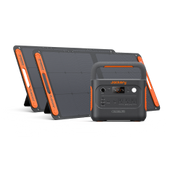
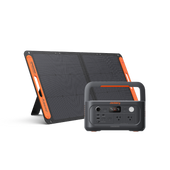

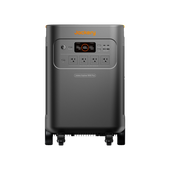

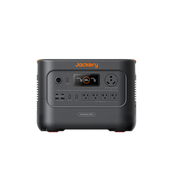
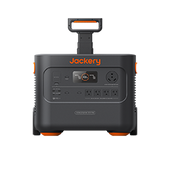
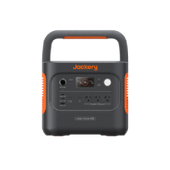
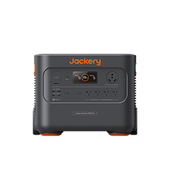

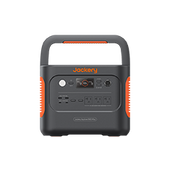



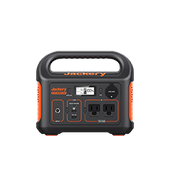

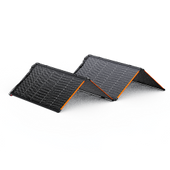
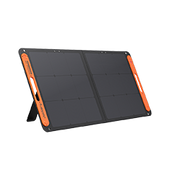


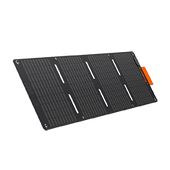

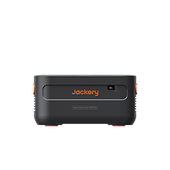
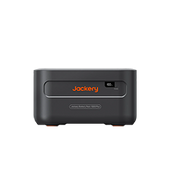
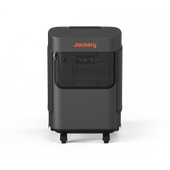






![[Add-on] Jackery Manual Transfer Switch for Explorer 5000 Plus](http://ca.jackery.com/cdn/shop/files/add-on-jackery-manual-transfer-switch-for-5000-plus-240V.webp?v=1757043692&width=170)
